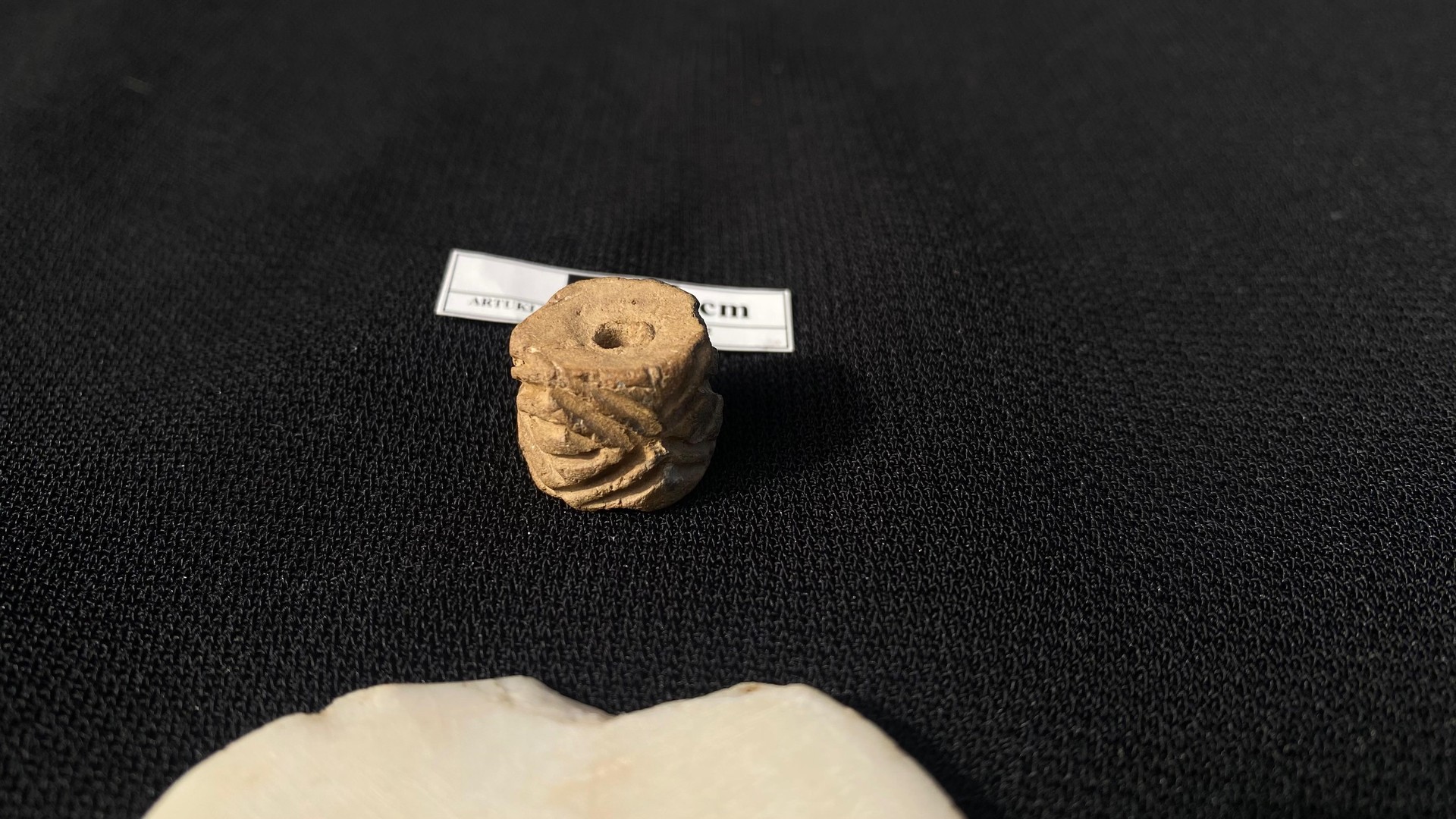
A cylindrical seal dating back to the Late Uruk Period, between 3,400 and 3,100 B.C., was discovered during excavations at Amida Hoyuk in Diyarbakir, Türkiye.
This remarkable artifact, which indicates a powerful trade network during that era, is currently on display.
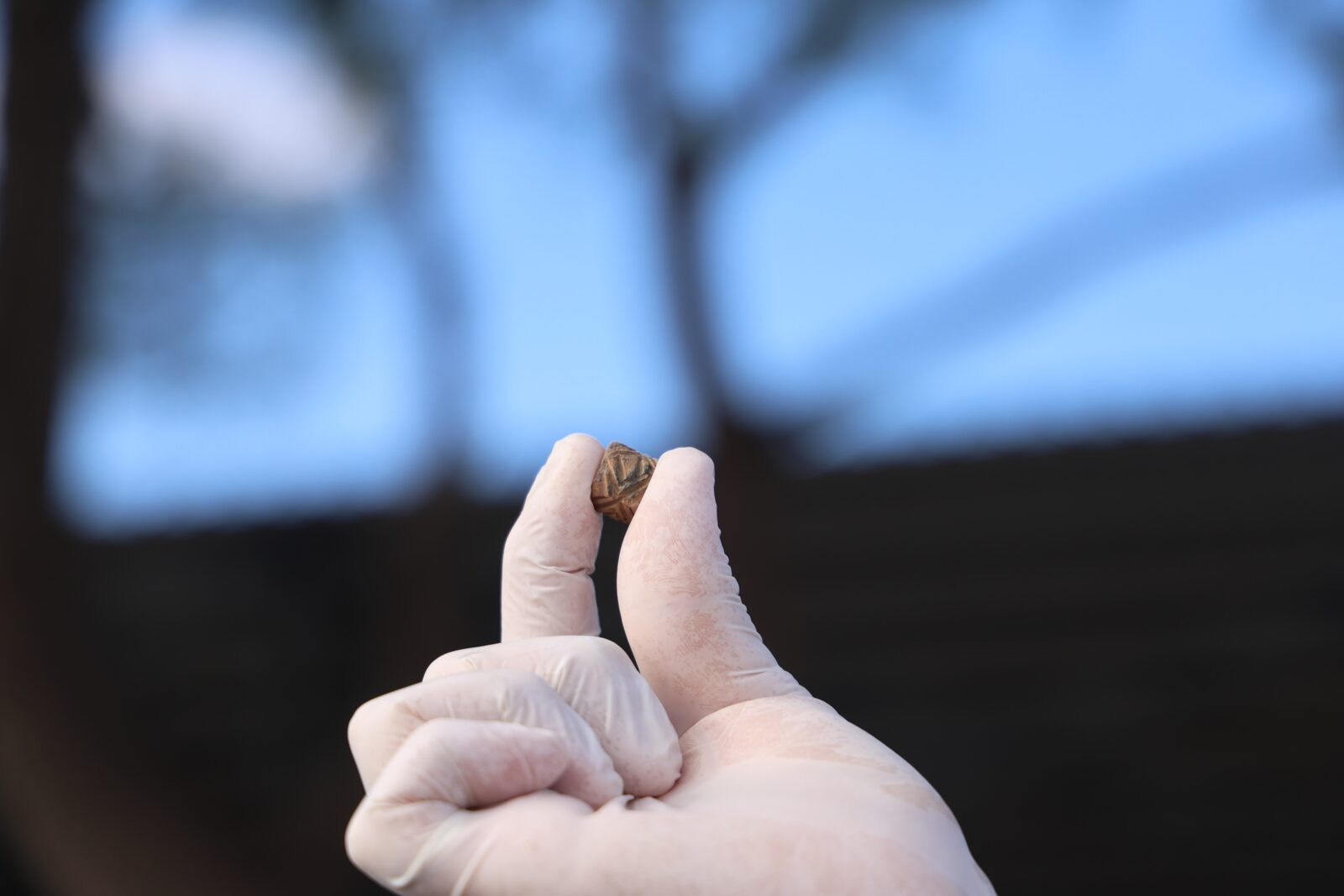
Professor Irfan Yildiz, a faculty member at Dicle University, emphasized that the discovery of this seal is just one of many significant finds from the excavation. “We have confirmed that continuous habitation has existed here for 10,000 years. Amida Hoyuk now ranks as the second oldest city in the world in terms of uninterrupted settlement, with Jericho in Palestine holding the top position with a history of 11,000 years,” he remarked.
Yildiz highlighted that the current excavations focus on the palace gate area and the continuation of the "Royal Road."
“This year (2024), we unearthed a cylindrical seal, a first for our excavation,” he said, adding: “Previously, hidden tunnels, water channels, a 1700-year-old royal road, burial chambers, and marble pieces from 800 years ago were found. The discovery of the seal underscores the strong trade connections of that era.”
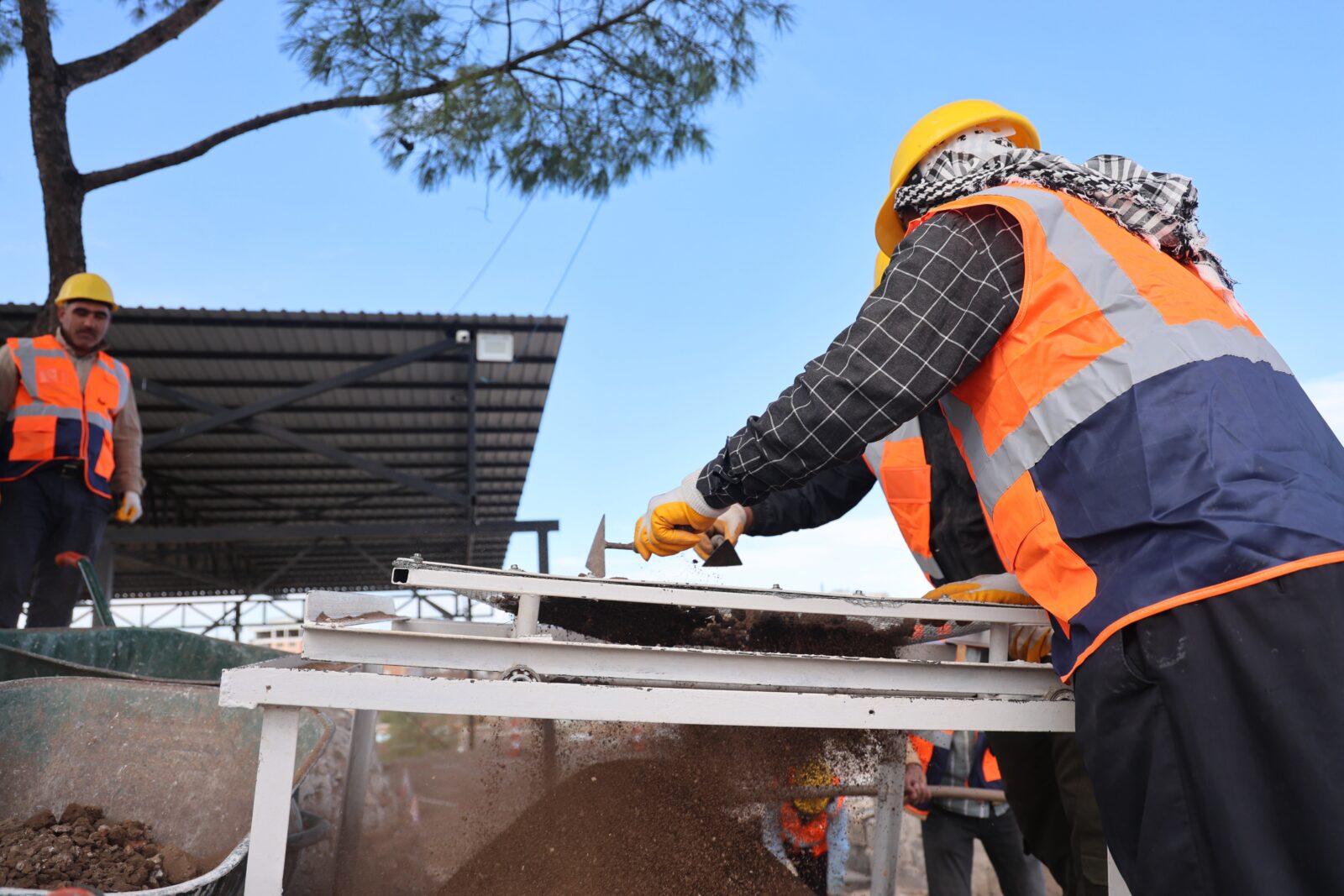
The ongoing excavations at Amida Hoyuk, located within the UNESCO World Heritage-listed Ic Kale (Inner Castle) area, have been full of surprises. The project, initially led by Professor Oktay Aslanapa in 1961-62, resumed in 2018 under the leadership of professor Yildiz, with support from Dicle University and Türkiye’s Ministry of Culture and Tourism.
The site has been home to various civilizations, including the Hurri-Mitanni, Assyrians, Urartians, Persians, Romans, Byzantines, Seljuks, Artukids, Ayyubids, Akkoyunlus, Safavids and Ottomans, reflecting a rich tapestry of history and culture spanning thousands of years.
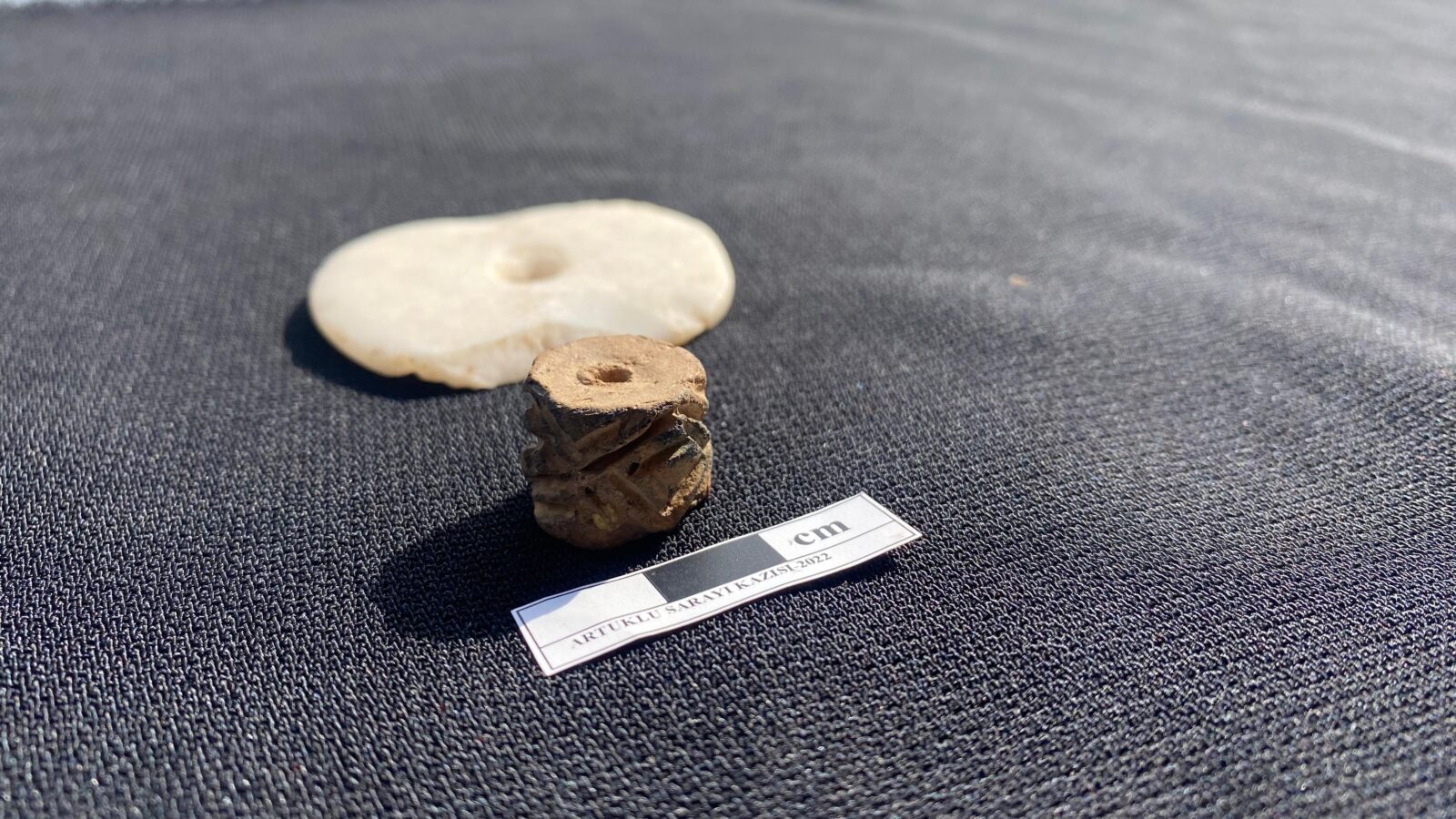
The seal, characterized by its cylindrical shape and geometric patterns resembling diamond shapes, is believed to have been used to mark documents, seal sacks, or close pottery. Similar seals were found in previous excavations at Muslumantepe in Bismil, Diyarbakir, though the current find was slightly damaged.
“This is the first cylindrical seal discovered during our excavation, though we have found a second similar item,” said Yildiz.
The intricate designs on the seal make it a unique piece, representing the artistic craftsmanship of the Late Uruk Period. Its discovery adds another layer of historical depth to Amida Hoyuk, which has seen continuous excavation work for the past seven years.
Classified under the status of 12-month excavation projects as per a Presidential decree, the site promises to unveil more historical treasures in the years to come.
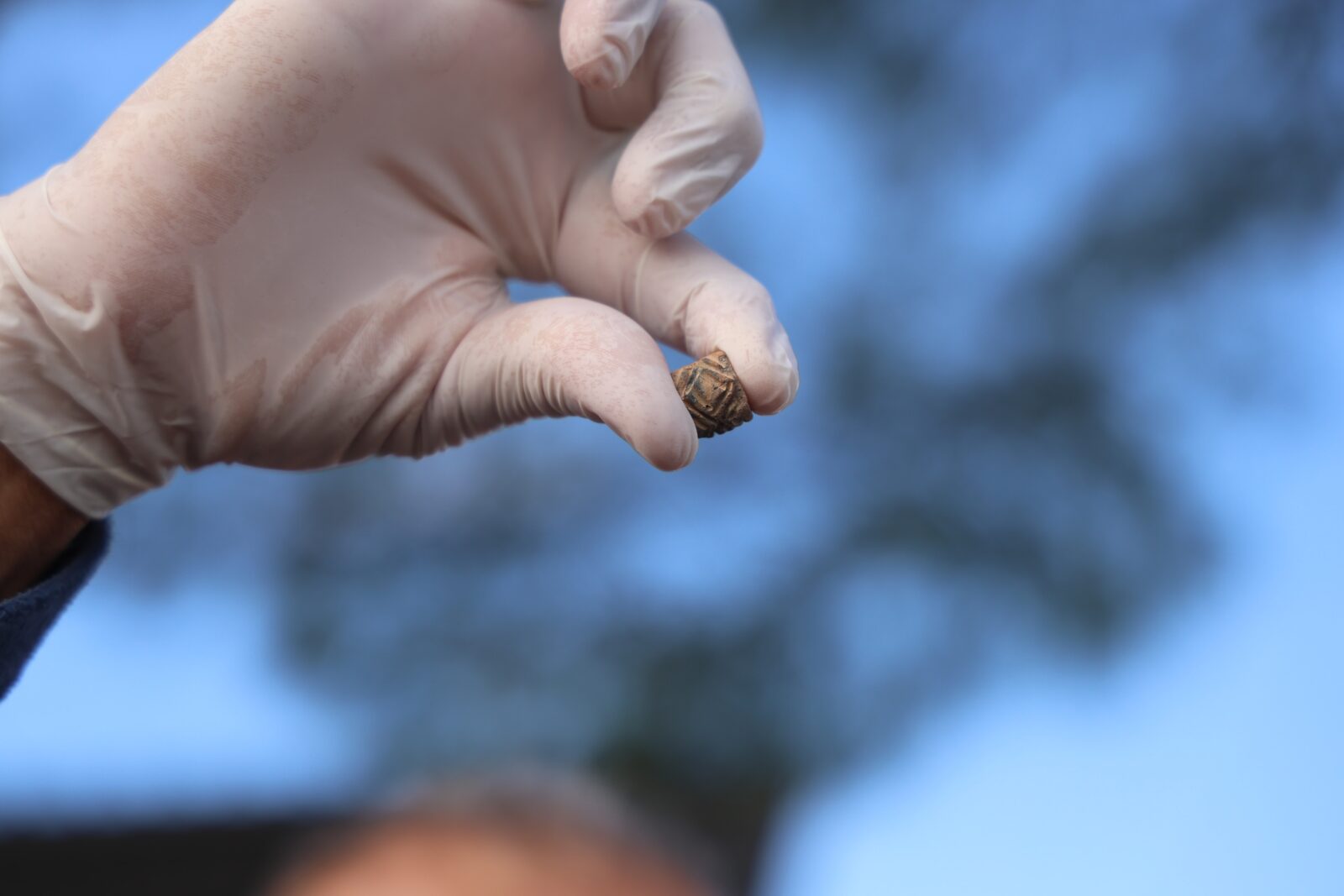
Professor Yildiz further explained the remarkable history of Amida Hoyuk, revealing that the city had been burned down three times throughout its past. “When we started, we estimated the city’s history to be about 5,000 years old. Subsequent data pushed this to 6,000, 7,000, and eventually 9,000 years."
"The layers of burned wooden and bone fragments, sent for analysis to The Scientific and Technological Research Council of Türkiye (TUBITAK), confirmed that the fires occurred between 5000 and 7000 B.C., showing that Amida was a significant city during that period.”
The latest discoveries, including obsidian pieces and pottery shards, have pushed the timeline of continuous settlement to 10,000 years, marking Amida Hoyuk as a vital archaeological site.
“These finds are undergoing further analysis, and we currently share an estimated timeline,” noted professor Yildiz, expressing optimism about what future digs may reveal.
The ongoing excavations at Amida Hoyuk continue to astonish archaeologists, revealing a city that stood the test of time, cultural shifts, and natural disasters. With each discovery, it becomes clearer how Amida Hoyuk played a crucial role in ancient trade networks and sustained life for thousands of years.
As work progresses, the site is set to become an even more significant landmark of continuous human settlement and historical legacy.